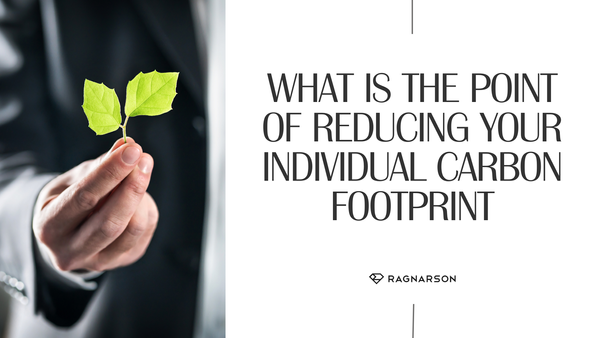What is the point of reducing your individual carbon footprint

Climate change, fueled by human activities, looms as one of the most pressing challenges of our time, casting a shadow of uncertainty over the future of our planet.
According to the Intergovernmental Panel on Climate Change (IPCC), global temperatures have risen by approximately 1.1 degrees Celsius since the pre-industrial era. This seemingly modest increase belies a cascade of devastating consequences, from rising sea levels and extreme weather events to disruptions in ecosystems and food supplies.
Consider the harrowing statistic that the last decade was the warmest on record, with each successive year surpassing the last in temperature anomalies. Glaciers are retreating at unprecedented rates, and oceans are acidifying at an alarming pace, threatening marine life and coastal communities.
Against this backdrop of urgency and uncertainty, the imperative to reduce our individual carbon footprints emerges as a beacon of hope—a tangible pathway toward mitigating the catastrophic impacts of climate change.
Reducing your personal carbon footprint holds immense significance in the fight against global warming. Here are some reasons why it matters.

Understanding the Carbon Footprint
Your carbon footprint represents the total greenhouse gas emissions directly and indirectly produced by your activities, such as driving, energy consumption, and diet choices. While it may seem abstract, every action contributes to this footprint, impacting the environment.
A Call to Responsibility
Reducing your carbon footprint isn't just an eco-friendly choice; it's a responsibility. By acknowledging our role in environmental degradation, we accept the obligation to mitigate our impact. It's about being mindful of our consumption patterns and their consequences.
Collective Impact
While individual actions may seem insignificant, collectively, they wield immense power. When millions commit to reducing their carbon footprints, it sends a powerful message to policymakers and corporations. It fosters a culture of sustainability and demands systemic change.
Preserving Resources for Future Generations
By minimizing our carbon footprints, we're safeguarding resources for future generations. Every ton of carbon dioxide not emitted prolongs the lifespan of our planet's finite resources, ensuring a healthier, more sustainable world for our children and grandchildren.
Personal Health and Well-being
Many actions that reduce carbon emissions also benefit personal health. Opting for sustainable transportation, consuming locally sourced foods, and reducing energy consumption lower your carbon footprint and promote healthier lifestyles.
Economic Benefits
Transitioning to a low-carbon lifestyle can lead to economic benefits. Energy-efficient homes save on utility bills, sustainable transportation options reduce fuel costs, and adopting a plant-based diet can be more budget-friendly. Investing in green technologies also stimulates job growth in the renewable energy sector.
Inspiring Change
Leading by example inspires others to follow suit. When friends, family, and communities witness the positive impact of sustainable living, they're more likely to adopt similar practices. Each individual's choice to reduce their carbon footprint contributes to a collective movement toward a more sustainable future.
Our Collective Responsibility
Reducing your personal carbon footprint is not an impossible feat; it's a series of conscious choices that ripple outward, shaping the world around us. From opting for sustainable transportation and embracing energy-efficient technologies to making mindful choices in consumption and diet, the path to sustainability is as diverse as it is accessible.
It's not a solitary trek but a communal endeavor—a tapestry woven from the threads of individual actions, each contributing to the vibrant mosaic of change. By embracing sustainability in our daily lives, we safeguard our planet's future and nurture thriving communities, vibrant ecosystems, and a more equitable world for all.

